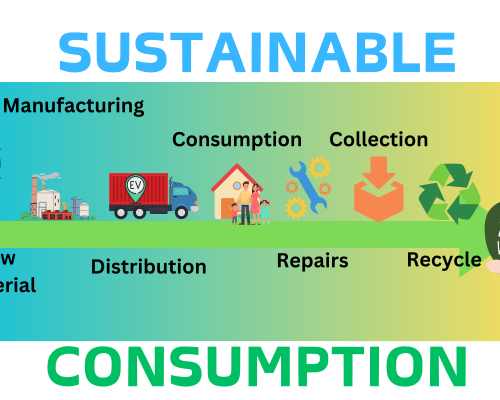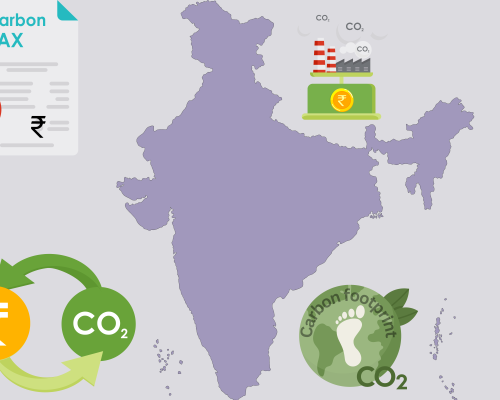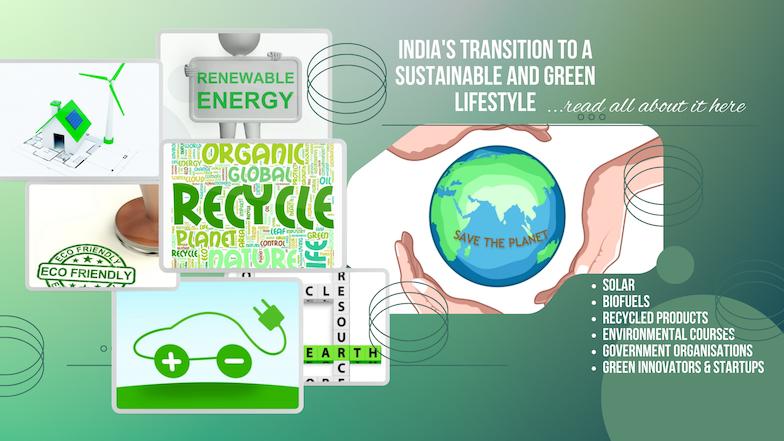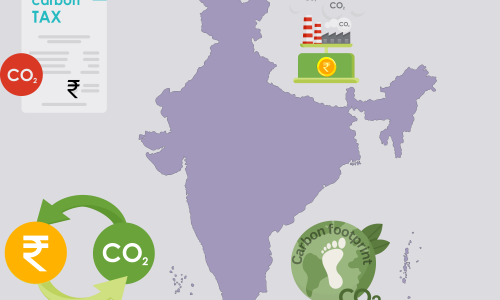India’s past and current production and consumption patterns have led to excessive greenhouse gas emissions, especially carbon dioxide, which have adversely impacted the country’s temperature levels. As per the Global Carbon Project, India was the third-largest emitter of carbon dioxide in 2020, with a share of 6.6% in global carbon dioxide emissions. The Paris Agreement is an international treaty that aims to limit global warming to well below 2°C above pre-industrial levels and to pursue efforts to limit it to 1.5°C. In 2022, global financial institutions have committed over $130 trillion to align with the Paris Agreement’s climate goals. India’s National Clean Air Program (NCAP) is a graded action plan to combat air pollution in India. The plan focuses on increasing the number of monitoring stations and strengthening enforcement of existing regulations. In 2022, Delhi received over Rs 18 crore from the centre to fight air pollution.
Renewable energy sources such as solar, wind, and geothermal power are the best bet for a rapidly industrialising economy like India. The government has made significant efforts to promote the use of renewable energy sources in recent years. The solar sector, in particular, is a significant opportunity for green job creation. The government is committed to harvesting solar energy and ecological sustainability. It has set an ambitious target of achieving 175 GW of renewable energy by 2022, of which 100 GW would be from solar power. The government has also launched schemes such as the Pradhan Mantri Kisan Urja Suraksha evam Utthan Mahabhiyan (PM-KUSUM) to promote the use of solar energy among farmers.
Green finance is an important means to facilitate the shift towards sustainable economic growth. It involves investing in environmentally friendly companies and projects that align with the Paris Agreement’s climate goals. Green finance encourages investments based not solely on the flashy numbers of risk returns but on the moral grounds of the companies and their economic activity. Risk and return are traded off depending on the larger goal of the investors. Incentivising green finance through tax breaks, subsidies, and other policy measures will encourage people to support measures dealing with climate change. This is especially important for a country like India, where green finance is still in its nascent stages.
In conclusion, India’s transition to a sustainable economy requires a concerted effort by the government, private sector, and civil society. The government’s commitment to solar energy and ecological sustainability, as well as initiatives like the National Clean Air Program, are positive steps in the right direction. Green finance is an important means to facilitate this shift towards sustainable economic growth. Right investment and incentives will encourage people to support measures dealing with climate change, which is essential for India’s sustainable development.










